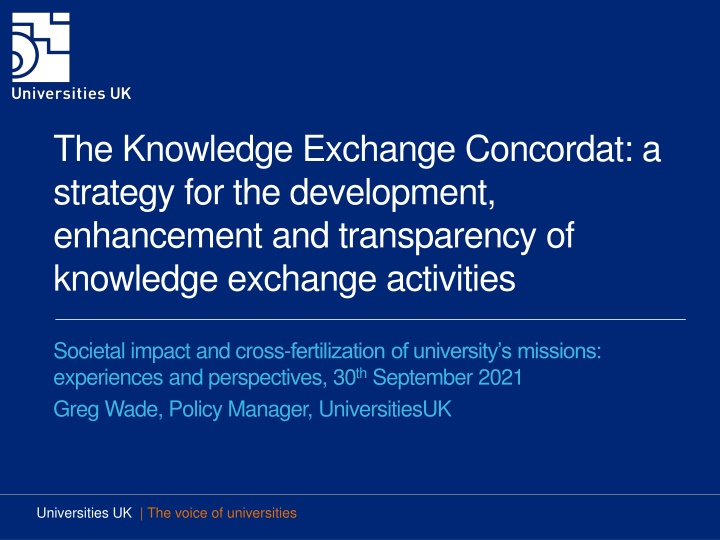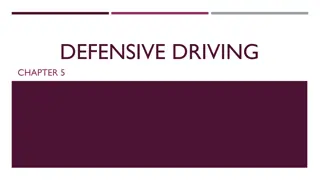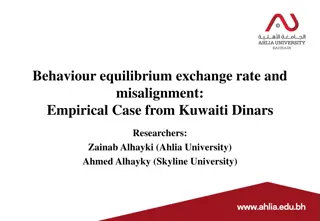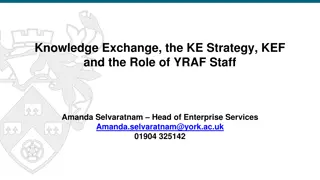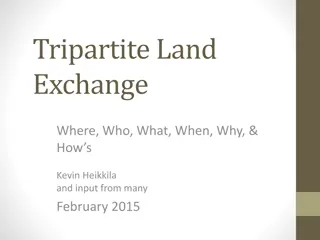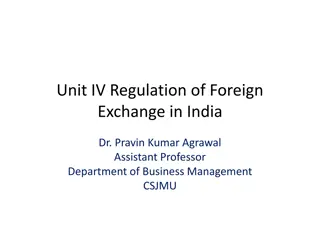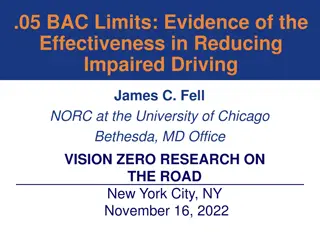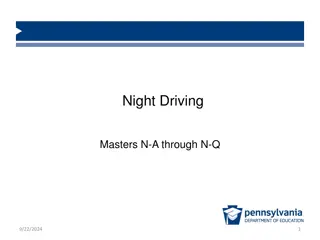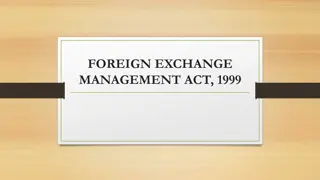The Knowledge Exchange Concordat: Driving Societal Impact Through University Collaboration
The article discusses the development and transparency of knowledge exchange activities in universities, emphasizing societal impact and cross-fertilization of missions. It explores the origins of the Knowledge Exchange Concordat (KEC), key challenges in commercialization and technology transfer, and the importance of motivating universities through impact on society rather than income. Recommendations for flexible strategies, leadership, and clarity in government expectations are highlighted for advancing knowledge exchange efforts.
Download Presentation

Please find below an Image/Link to download the presentation.
The content on the website is provided AS IS for your information and personal use only. It may not be sold, licensed, or shared on other websites without obtaining consent from the author.If you encounter any issues during the download, it is possible that the publisher has removed the file from their server.
You are allowed to download the files provided on this website for personal or commercial use, subject to the condition that they are used lawfully. All files are the property of their respective owners.
The content on the website is provided AS IS for your information and personal use only. It may not be sold, licensed, or shared on other websites without obtaining consent from the author.
E N D
Presentation Transcript
The Knowledge Exchange Concordat: a strategy for the development, enhancement and transparency of knowledge exchange activities Societal impact and cross-fertilization of university s missions: experiences and perspectives, 30thSeptember 2021 Greg Wade, Policy Manager, UniversitiesUK Universities UK | The voice of universities
The Origins of the KEC Universities UK | The voice of universities 2
The Pre-History of the KEC Dowling Review - business and university research collaboration 2015 CBI Best of Both Worlds guide to business university collaboration - 2015 House of Commons Select Committee Review Catapult Centres 2014 Hauser Review Catapult Centres - 2014 Witty Review universities and growth 2013 House of Commons Science and Technology Committee improving the commercialisation of research - 2013 Wilson Review business university collaboration - 2012 Universities UK | The voice of universities 3
Key Issues, Themes, Challenges Policy Groundhog Day Need to get better at commercialization Intellectual Property will ensure economic growth Old fashioned approaches to technology transfer If only we were as good as MIT Ensuring accountability or encouraging improvement ? Universities UK | The voice of universities 4
McMillan Report 2016 Myth-busting Work to do Universities UK | The voice of universities 5
McMillan Report Conclusions - 1 Motivation - Universities are motivated by impact on society not income US models - are exceptions not necessarily adoptable models Flexible strategies - Universities, technologies and places vary and so must strategies Broad view - Focussing on spin-outs and IP alone misses the bigger role Appropriate - Universities pursue most appropriate pathway for the technology and place Leadership and Clarity - Senior University leadership is essential and clarity of government expectation is important. Towards a digital strategy Universities UK | The voice of universities 6
McMillan Report Conclusions - 2 World class - UK standards of practice that are comparable to the rest of the world Firm foundation - We have leading edge performers and a strong community of practice. Variety - National and institutional policies reflect institutional capabilities, eco-systems, tech specialisms. One size fits all does not work. Comparing universities is therefore very difficult. Aspiration - We need to set ourselves aspirational standards and do new things Clarity - We need clarity of expectation at all levels in the process Universities UK | The voice of universities 7
McMillan Report Recommendations Leadership: provide institutional statements Governance: provide advice to governors Eco-systems: improve evidence base Sectors: develop sector differentiated good practice Academic entrepreneurs: identifyways to benchmark university support Professional community of practice: wider links; more help to smaller and newer units A KE Framework which encourages innovative, reflective and evaluative practice Universities UK | The voice of universities 8
Knowledge Exchange Framework and Concordat Knowledge Exchange Framework Knowledge Exchange Concordat Developed by government An accountability mechanism ? Ensuring efficient and effective use of public funding Alongside framework for research excellence and teaching excellence A strong focus on data Measuring past performance Compares institutions Government led Developed by universities A development mechanism ? Voluntary Focused on future ambition and commitments A means to improve on the performance measured in the KEF Judged in the context of institutional priorities University led Universities UK | The voice of universities 9
Knowledge Exchange Concordat - Aims Provide a framework and process to: give universities and their staff and students a clarity of mission and support their development, give partners an accurate representation of the approach that individual universities are taking to KE Provide a mechanism for considering performance Enable institutions to provide clear indicators of their approaches to performance improvement encourage collaboration between universities give our governing bodies and government broad confidence in the activity that is taking place in universities Universities UK | The voice of universities 10
The KE Concordat Principles Principle 1. Mission Principle 2. Policies Principle 3. Engagement Principle 4. Working transparently and ethically Principle 5. Capacity building Principle 6. Recognition and rewards Principle 7. Continuous improvement Principle 8. Evaluating Success Supported by Enablers : examples of good practice, they should not be considered as a prescribed set of activities and they do not represent a check list against which universities can be judged. Website Universities UK | The voice of universities 11
The KEC Process Development Year Institutions Evaluation Review Commit to the 8 principles Panels of Evaluators We will review, the process, content, actions and feedback Conduct a self- evaluation Provide advice and guidance on strengths, weaknesses and future action We will share good, innovative practice and support networking. Submit an Action Plan Feedback is confidential We will negotiate the future of the KEC Universities UK | The voice of universities 12
KEC Participation Institutions in: England - 137 Scotland - 17 Wales - 9 Northern Ireland 2 Total - 165 Participation in: England -112 = 82% (80%) Scotland - 10 = 59% (29%) Wales - 8 = 89% (11%) N. Ireland -1 = 50% (50%) Total - 131 = 79% (70%) Universities UK | The voice of universities 13
Reasons for and against participation For Participation: Raise the profile of knowledge exchange internally and externally. The opportunity for self evaluation and reflection. Developing good practice, getting external advice and support. Supports all of the activities of the university that involve knowledge exchange. Competition and reputation. Against Participation: Resources and burden. Timing of strategy development. Process not proven. Universities UK | The voice of universities 14
Reflections Enthusiasm and commitment of KE colleagues, during a very busy time The process, through webinars and networking is already sharing good practice Institutional honesty and willingness to learn and develop is high It is raising the profile of knowledge exchange internally, enabling strategic reflection and raising ambition There is enthusiasm to share, collaborate and develop even more We need to ensure that we build on the KEC and promote it outside of the sector Universities UK | The voice of universities 15
Finally, a request Universities UK | The voice of universities 16
